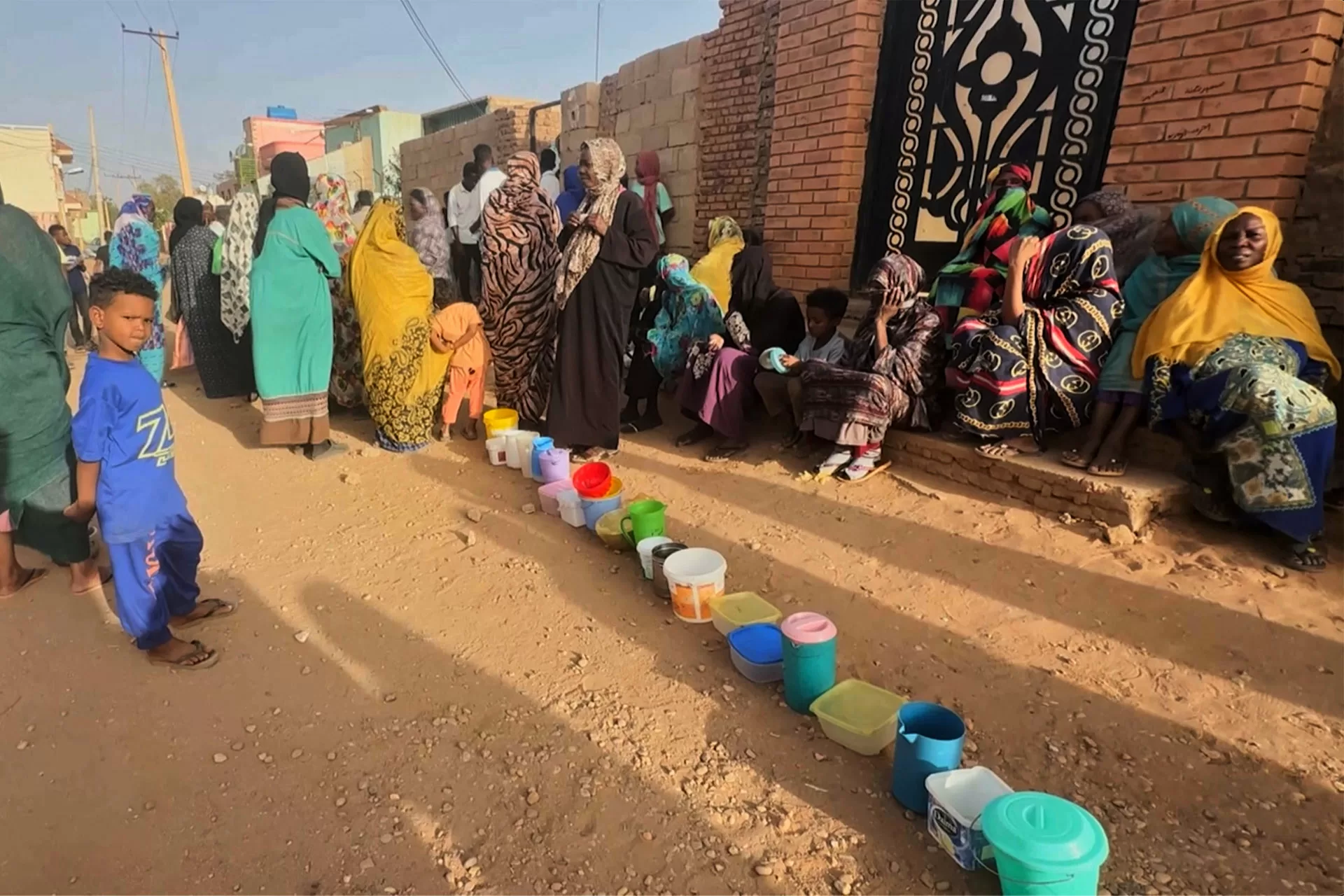The risk of a devastating famine is rising exponentially across Sudan. According to a recent report by the United Nations’ hunger monitor, a “stark and rapid deterioration of food security situation” in the last six months has brought the war-ravaged Northeast African nation to the precipice of a catastrophe beyond imagination.
More than eight million people across 14 of the 18 states of Sudan are now facing food shortages that could result in acute malnutrition and death. Some 750,000 of those are at risk of immediate starvation. According to an analysis by Save the Children, some “16.4 million children, or three in every four in the country, are now facing ‘crisis’, ’emergency’ or ‘catastrophe’ levels of hunger – up from 8.3 million just last December”.
Yet, despite the imminent threat of an unprecedented humanitarian catastrophe, the international community, and especially the Western world, shows little interest in Sudan and its protracted conflict. Where are the headlines? Where are the protests? Where are the campaigns, interventions and demands for accountability?
The years-long conflict in Sudan has internally displaced nearly 10 million people, killed tens of thousands and left millions of others hungry, traumatised and with little hope for the future. In Sudan, every day is a tragedy, but the world does not seem to pay any attention.
While undoubtedly harmful and frustrating, the Western-led international community’s apparent disinterest in Sudan’s crisis is hardly surprising. Time and again, we have seen the West and its leaders briefly “care” about a crisis in Africa or the Middle East to only completely forget about it when another crisis or development – perceived to be more consequential, relevant to national interests or merely interesting – arises elsewhere and grabs the attention of the media, politicians and the masses.
In fact, Sudan is hardly the only forgotten crisis of our day.
Syria, for example, is still experiencing a horrific crisis, with millions displaced with no hope of returning home, living in terribly difficult conditions in Syria and abroad, but the world has moved on from the Syrian war and is no longer paying much attention to the tragedies still affecting the Syrian people today.
The people of the Democratic Republic of the Congo (DRC), too, are still being killed, maimed and displaced amid ongoing fighting between rebels and the military, but their suffering appears to be nothing more than a footnote on the Western agenda.
The ongoing atrocities in Gaza have received significant attention from the international community since the beginning of the latest round of conflict for various reasons. But now, with the United States, France and the United Kingdom all turning their focus to their own elections and domestic politics, the war and humanitarian crisis in Gaza are also gradually being reduced to secondary concerns.
The crises in the Global South have always faced an uphill battle for global attention. However, when the international community looks away, moves on from, or “forgets” a crisis or conflict in Sudan, Syria, Congo or elsewhere, that crisis does not go away. It grows worse. In fact, lack of international scrutiny means humanitarian needs and human rights abuses are allowed to spiral with impunity.
It is not too late to correct course. The international community can still do the right thing, and expand its attention span beyond a single conflict, discussion, issue at a time and recognise that the world’s many protracted conflicts and humanitarian crises have not gone away because we stopped paying attention to them.
Sudan, especially, is in urgent need of global attention and action.
It was in early March that the World Food Programme issued its shocking warning that the war in Sudan threatens to trigger “the world’s largest hunger crisis”. Four months on, the situation is significantly worse and that “largest hunger crisis” is almost here.
We, and our partners working in Sudan are seeing families left with no other options but having to eat soil and leaves in an attempt to fight off impending starvation. Parents are travelling across the country in search of work to provide for their children. No one is certain where their next meal will come from, if it comes at all.
Sudan will soon enter its main crop planting season. But with most of the population displaced, and those left behind too starved to work, the chance of a successful harvest is heartbreakingly low.
The world must recognise what is happening in Sudan and take urgent action to prevent further devastation of a people who have already suffered for too long.
If we do not act now, the consequences – “the largest hunger crisis of our time” – will be on our conscience. We cannot say we didn’t know – only that we didn’t care.
The views expressed in this article are the author’s own and do not necessarily reflect Al Jazeera’s editorial stance.
